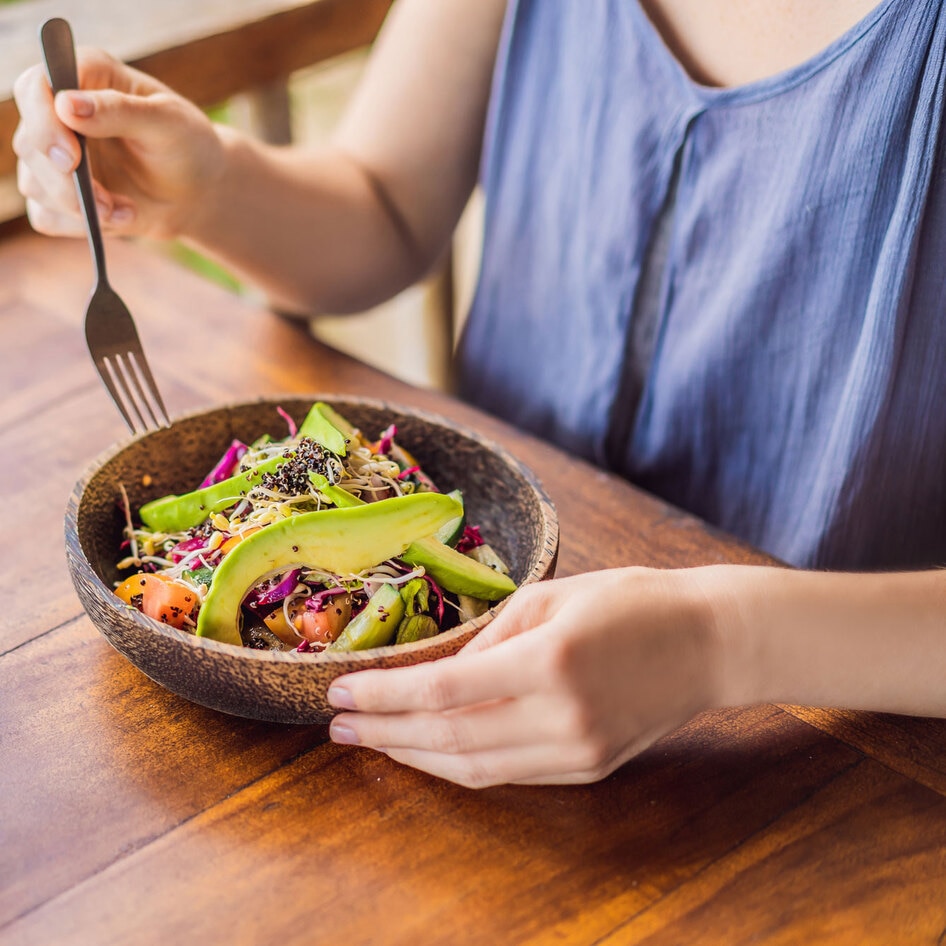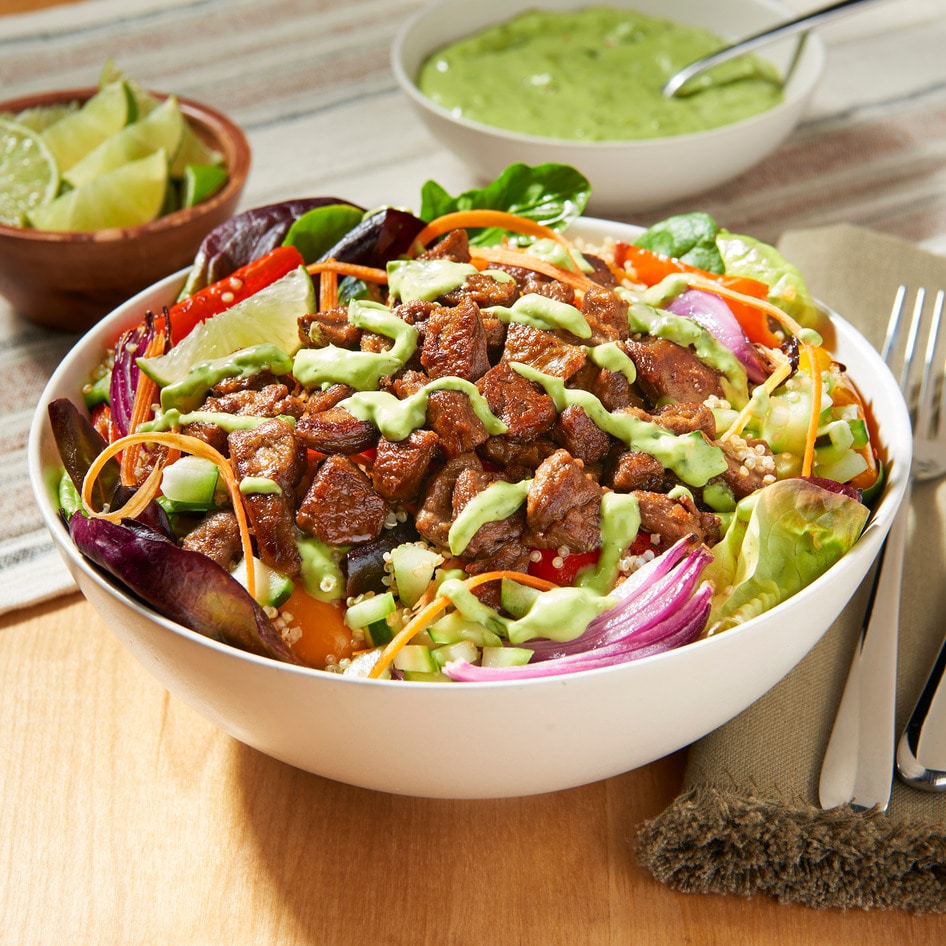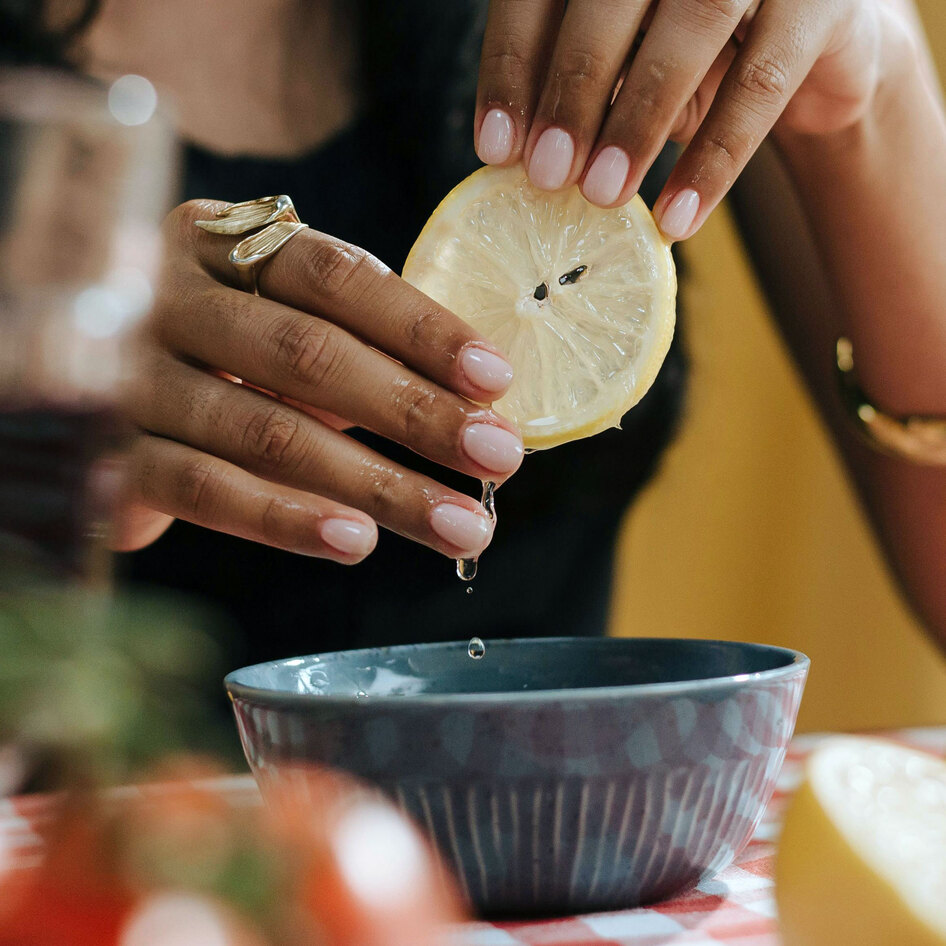Superfoods-powered mother-daughter team Tracye and Mary McQuirter know how to stop time. For thirty years, they’ve followed an abundant plant-based diet, preserving and optimizing their physical and mental youth. Doctors have deemed 81-year-old mother Mary as having the health of someone three decades younger. In the McQuirters’ new book, Ageless Vegan, they share the secrets to their healthful fountain of youth. Tracye filled VegNews in on her key ingredients for hitting the pause button on the aging process. In these six simple steps, you can, too.
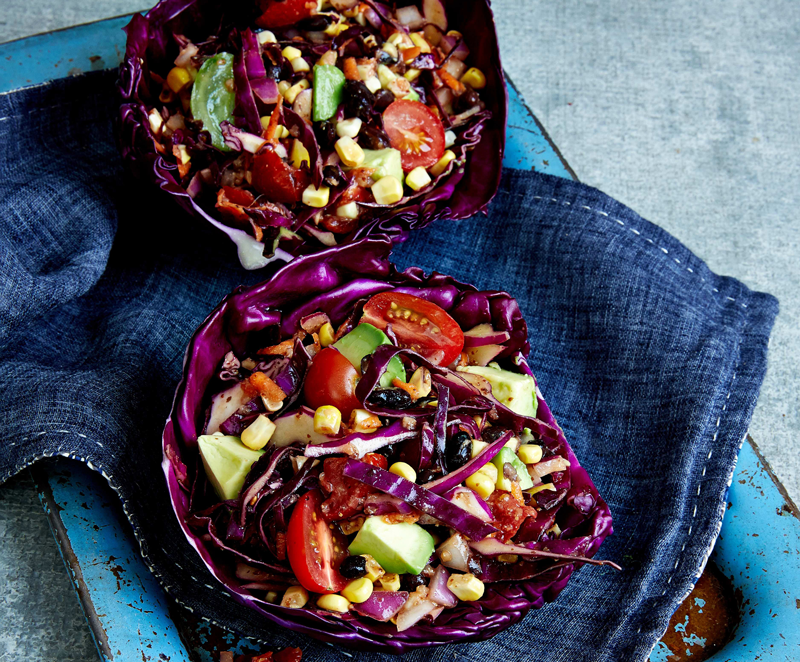 1. “Go whole-food plant-based for the win.”
1. “Go whole-food plant-based for the win.”
Many of us associate old age with a decline in mental and physical health that includes bone density loss, deterioration of vision, and diseases such as Alzheimer’s. “We assume that because it happens to most people, it’s normal, but it’s not. It doesn’t have to be that way,” says McQuirter. She shares that eating a whole-food plant-based diet (avoiding processed ingredients such as sugar and white flour) fends off these ills. So trade in the processed sugars for sweet whole fruits and the white rice for brown (as well as other whole grains that still have their germ, fiber, and bran). “The natural sugars in fruit and vegetables are actually quite healthy for you,” she says. “They don’t spike your blood sugar level because all the fiber is in tact.”
2. “It’s never too early or too late to eat healthier.”
As soon as you start on your new plant-based path, you will begin to be healthier. Since the effects are cumulative, the longer you maintain your healthful lifestyle, the greater results you’ll see. To get started in your new food routine, McQuirter advises adding to dishes, rather than taking away. So start incorporating fruit, vegetables, whole grains, beans, and nuts into those meals as soon as you can. Making a salad with romaine lettuce? Toss in some dark leafy spinach. Throw in a few nuts while you’re at it. Every which way you can, add whole foods to your plate. Make it about building up the healthy ingredients, rather than depriving yourself of what you love.
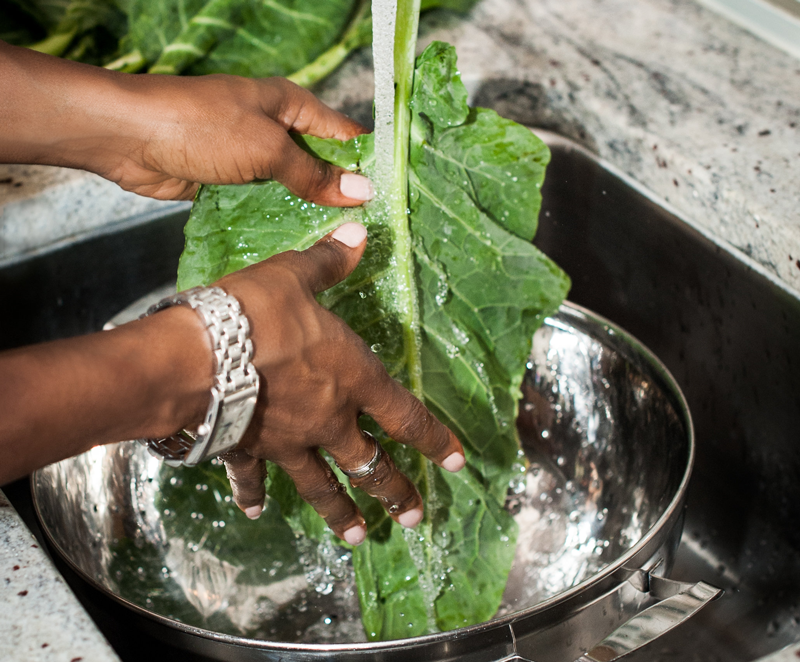 3. “Be still and be active.”
3. “Be still and be active.”
In addition to eating a whole-food plant-based diet, stress reduction and exercise are important components in the healthy routine that will keep away diseases associated with old age. McQuirter recommends finding a form of relaxation, such as meditation, but advises that mindfulness can come in many forms. It could mean simply staying in the moment while you’re washing the dishes, rather than letting your mind wander to the future or the past. Exercise and relaxation, along with good nutrition, are the author’s three top ingredients to putting off the aging process. McQuirter recommends thirty to sixty minutes of physical activity a day, three to five times a week.
4. “Eat a rainbow each day.”
The vibrant colors of brightly-hued plant-based foods indicate the powerful nutrients they are delivering. “Those colors: the reds, the blues, the purples, the whites, the tans, and the greens [each] represent different health-promoting compounds,” says McQuirter. So eat all of them and you’ll benefit from the full variety of healthful properties. The author recommends having at least three bright colors on your plate for each meal. At breakfast, enjoy a nice cold smoothie with green kale, bright red strawberries, and blueberries. These darker berries have been proven to improve brain function.
 5. “Stay on budget.”
5. “Stay on budget.”
As we get older, many of us have a more limited income. Whether we’re in our forties, sixties, or eighties, an added bonus of a whole-food plant-based diet is that we save money by staying close to the source. By focusing on foods that have not been processed, we spend less by buying raw fruit and vegetables, nuts, beans, and whole grains—this is way less expensive than the cost of many processed foods. To save even more money, try shopping in the bulk foods sections of health food stores and co-ops, where you can purchase only what you need.
6. “Stock your fridge with common, everyday superfoods.”
Turmeric, available in supermarkets everywhere, has been shown to prevent and reduce the symptoms of Alzheimer’s. McQuirter recommends adding a quarter teaspoon of the tasty spice, with a dash of pepper, to your food several times a week. Celery has powerful protective properties, helping to fend off the inflammation that leads to dementia. Whether you dip it in hummus or spread it with lentil pâté, you can chomp yourself to good health. To combat bone density loss in women, the author advises indulging in lots of dark leafy greens, which are high in vitamin K. Says McQuirter: “Eat them in a stir-fry, eat them steamed, eat them raw, or throw them in your smoothie in the morning.”
Maya Gottfried is the author of Vegan Love: Dating and Partnering for the Cruelty-Free Gal and Our Farm: By the Animals of Farm Sanctuary
JUMP TO ... Latest News | Recipes | Guides | Health | Subscribe
Photos courtesy of A Little Whimsy Photography and Kate Lewis

